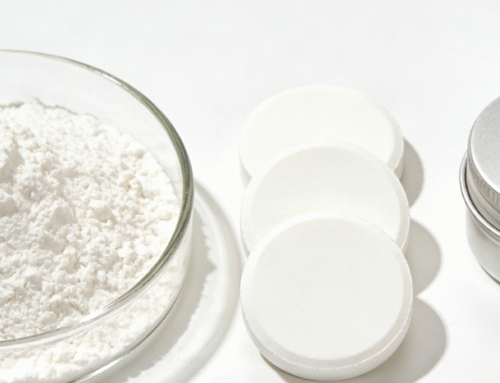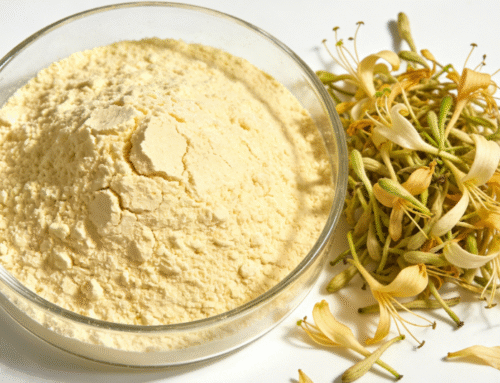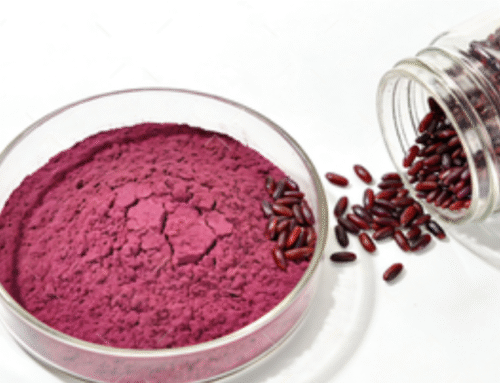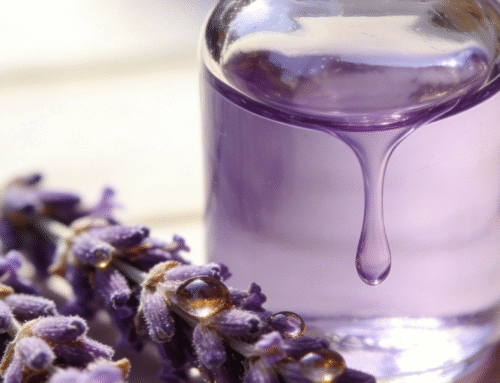Table of contents:
1.L-Theanine and Neuropsychiatric Diseases
2.L-Theanine, Anxiety and Stress
3.L-Theanine and Other Mental Illnesses
4.L-Theanine Cerebrovascular Disease and Stroke
L-Theanine (γ-N-Ethylglutamine), naturally present in tea leaves and edible Boletus serrata (scientific name: Xerocomus badius). Green tea and black tea have the same botanical origin. Black tea is made by fermentation while green tea is not. Green tea has been a mainstay of traditional Chinese medicine for over three thousand years, and it is used as a potion with other herbs and on its own as a concentrate designed to enhance stamina and concentration. The amount of L-theanine depends on where the tea tree was grown, how it was made, and when it was harvested. Different types of tea such as Pu-erh have higher levels of L-theanine than the better-known camellia. There is also a synthetic form of L-theanine (Suntheanine).
L-Theanine is widely used in Asian countries to combat various medical and mental health problems, and it is rapidly gaining popularity in Western countries. Caffeine, another major component in tea, may raise levels of acetylcholine and dopamine in the brain, which may improve focus, cognition, and mood. In terms of cognitive benefits, caffeine was more effective than L-theanine because it was absorbed more quickly, reaching peak plasma levels after 30 minutes, compared to plasma levels 50 minutes after L-theanine ingestion compared to peak levels. In addition to theanine and caffeine, tea contains other components that may provide various health benefits, including the amino acids glutamine, arginine, serine and alanine and the phenolic compounds epigallocatechin, epigallocatechin Tea gallate, epicatechin and epigallocatechin gallate (so called ‘catechins’). Matcha is a special green tea product that contains higher levels of beneficial phytochemicals than regular green tea.
Animal and human studies have shown that L-theanine may reduce subjective stress responses, improve cognition, optimize sleep, and may have protective effects against chronic disease, cardiovascular disease, obesity, and common cold. Various green tea components, including L-theanine, caffeine, and catechins, may help prevent metabolic syndrome and obesity. L-theanine may reduce oxidative damage caused by reactive oxygen species (ie, “free radicals”), increase glutathione concentrations in the liver, and enhance the ability of liver enzymes such as superoxide dismutase to remove toxins from the blood . The findings suggest that L-theanine may have anti-aging properties. Catechins from green tea may have beneficial antimicrobial and antiviral activity. In the gastrointestinal tract, green tea has been shown to potentially activate intracellular antioxidants and suppress the formation of pro-carcinogens.
-
L-Theanine and Neuropsychiatric Diseases
L-theanine has been shown to potentially improve learning, memory, and cognitive function, and enhance selective attention in mental tasks. Epidemiological studies suggest that regular consumption of tea made from camellia leaves may be associated with a lower incidence of cognitive decline, improved mood, and increased ability to cope with stress. L-theanine may be a promising enhancement therapy for schizophrenia and may be beneficial for mood disorders, attention deficit hyperactivity disorder (ADHD), as well as panic disorder, obsessive-compulsive disorder (OCD), and bipolar disorder.
Placebo-controlled studies have investigated the effects of L-theanine alone or in combination with caffeine on mood and cognitive performance, finding that cognitive function may be enhanced in integrative therapy, but not with L-theanine alone. no response. Two meta-analyses of the effects of tea constituents on mood and cognition in acute psychosis found that L-theanine may improve self-perceived relaxation, reduce subjective tension, and caffeine may improve demanding recognition. performance on cognitive tasks and may improve alertness and vitality.
Animal studies show that L-theanine may rapidly cross the blood-brain barrier, increase brain levels of serotonin, gamma-aminobutyric acid, and dopamine, bind to glutamate and NMDA receptors, and may increase brain-derived neurotrophy Factor (BDNF) levels. Long-term use of L-theanine (i.e., more than 3 to 4 weeks) may have general neuroprotective effects, possibly caused by brain-derived neurotrophic factor (BDNF) in the hippocampus (a brain region that plays a central role in memory consolidation). ) caused by increased synthesis. All of these effects are thought to potentially relieve anxiety.
Since L-theanine is often ingested along with caffeine and other bioactive components in tea, most studies have investigated the combined effects of L-theanine and caffeine on mood and cognition.
-
L-Theanine, Anxiety and Stress
The anxiolytic effects of L-theanine are mediated through different mechanisms, including elevated alpha-brainwave activity, increased gamma-aminobutyric acid synthesis, and its role as a weak antagonist of AMPA glutamate receptors . The general calming benefits of L-theanine are reflected in increased brain electrical activity in the alpha frequency range (8 to 13 Hz). Changes in electrical brain activity measured by electroencephalography (EEG) were dose-dependent and similar to the beneficial EEG changes observed in meditation, including increased alpha waves in the occipital and parietal regions. After a 200 mg dose of L-theanine was shown, increased alpha activity may persist for 60 minutes, and this effect was more pronounced in individuals with higher trait anxiety. Ultimately, the study found that consuming green tea high in L-theanine might alleviate adrenal hypertrophy in mice exposed to chronic stress.
Depending on the relative amounts of L-theanine and caffeine in a particular kind of tea and how it’s prepared, individuals who drink green tea to reduce stress or anxiety may experience greater calming effects than stimulation. A general calming effect may usually be noticed within 30 to 40 minutes after taking a 50 to 200 mg dose of L-theanine and usually lasts 8 to 10 hours. Moderate anxiety neurosis usually occurs after taking 200 mg once or twice a day. More severe anxiety may require a daily dose of 600 mg to 800 mg, taken in 100 mg to 200 mg increments throughout the day. Unlike benzodiazepines and other anti-anxiety medications prescribed by doctors, L-theanine may not cause drowsiness, unresponsiveness, or difficulty concentrating, and there may be no risk of developing tolerance or dependence. There are no reports of serious adverse side effects or interactions between L-theanine and psychotropic agents or other natural products.
Research findings on L-theanine for state anxiety may vary. Differences in results may be related to the different patient groups examined, and some studies have investigated caffeine in combination with L-theanine. A placebo-controlled trial comparing L-theanine 200 mg/day to the benzodiazepine alprazolam may have found evidence of general anxiolytic effects but failed to alleviate experimentally induced state anxiety. In contrast, two other studies reported that there may be significant reductions in subjective stress measures, such as heart rate and blood pressure, in response to the same dose of L-theanine. In a 4-week placebo-controlled trial (N=30), adults without psychiatric disorders randomized to receive 200 mg/day of L-theanine may have reduced state anxiety compared with placebo And sleep improvements may be significantly more. In a small placebo-controlled trial, 16 healthy adult volunteers were randomized to L-theanine 200 mg/day, alprazolam 1 mg, or placebo, both during relaxation and experimentally induced acute anxiety conditions monitor. L-theanine may have some relaxing effects under baseline conditions, but neither alprazolam nor L-theanine may have demonstrated greater anxiolytic effects than placebo during either relaxed states or experimentally induced anxiety states effect.
In a 10-week placebo-controlled study (N=46), adults with a DSM-5 diagnosis of generalized anxiety neurosis were randomized to receive L-theanine (450 to 900 mg/day) or placebo , while continuing their current pharmacotherapy. The adjunctive L-theanine group may not perform better than the placebo group in reducing anxiety or optimizing sleep. In a small placebo-controlled study (N=34), healthy adults aged 18-40 were given an L-theanine drink or a placebo followed by a multitasking cognitive stressor. One hour after ingestion of the beverage, the L-theanine group reported a significantly lower stress response compared to the placebo group. Another study on nutritional drinks containing L-theanine 200 mg, phosphatidylserine 1 mg, chamomile 10 mg, and glycerophosphocholine 25 mg found that subjective stress responses may be significantly reduced 1 hour after ingestion, Serum cortisol levels may decrease significantly 3 hours after ingestion.
-
L-Theanine and Other Mental Illnesses
A placebo-controlled study found that taking L-theanine 100 mg twice daily may significantly improve sleep quality in boys with ADHD, suggesting that L-theanine may be an effective adjunct therapy for ADHD. L-theanine does not cause drowsiness, but taking 200 mg of L-theanine before bed may optimize sleep by relieving anxiety.
Emerging research findings support that L-theanine may be beneficial for symptoms of depressed mood and psychosis. In an 8-week open-label study (N=20) adults diagnosed with major depressive disorder treated with L-theanine 250 mg/day reported possible improvements in mood, anxiety, and sleep quality improve.
L-theanine may also have beneficial effects on anxiety related to psychosis. Results of an 8-week placebo-controlled trial suggest that increasing doses of L-theanine may reduce anxiety levels in people with schizophrenia and schizoaffective disorder. The beneficial effects of increasing L-theanine doses in this population may be mediated by increases in cortisol and brain-derived neurotrophic factor (BDNF). Combination therapy containing the neurosteroid pregnenolone and the amino acid L-theanine may be beneficial for psychotic symptoms. In an 8-week, double-blind, placebo-controlled trial (N=40) of adults with schizophrenia or schizoaffective disorder who did not respond well to antipsychotics, randomized to pregnenolone (50 mg/day) plus L- Theanine (400 mg/day) or placebo while continuing to take antipsychotics. At the end of the study, patients treated with pregnenolone plus L-theanine may have significantly fewer negative psychotic symptoms, such as dull mood, anhedonia and speech deficits, anxiety, and General functionality could be improved more.
-
L-Theanine Cerebrovascular Disease and Stroke
Results from animal studies suggest that L-theanine may help prevent cerebrovascular disease and reduce the effects of cerebrovascular accidents (ie, stroke). The neuroprotective effect of L-theanine after transient cerebral ischemia may be related to its role as an AMPA glutamate receptor antagonist. Rats treated with L-theanine (0.3 to 1 mg/kg) prior to experiencing experimentally induced repeated bouts of cerebral ischemia may exhibit a marked reduction in spatial memory impairment and neuronal cell death.
From the above detailed introduction, it can be seen that theanine can indeed improve anxiety and insomnia. Friends who are troubled by this can try to use theanine to help you. If you want to learn more about theanine, you can also check and click this blog.
Xi’an Herb Bio can provide you with high quality L-theanine at a price you can afford. For more information, please click here to get samples and quotations and the information you need.
Need L-theanine? Please contact Xi’an Herb Bio now!






Leave A Comment